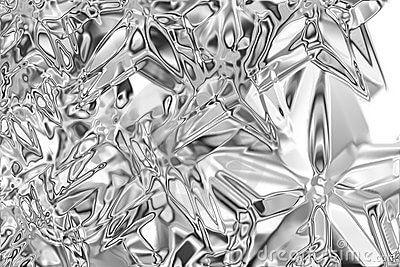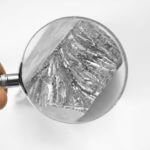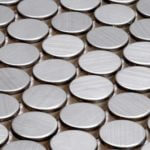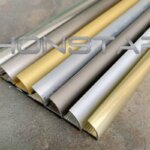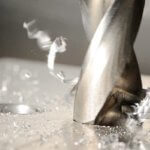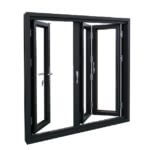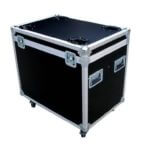In depth information about aluminum
In depth information about aluminum
Aluminium is a silvery white member of the boron group of chemical elements.
It has the symbol Al and its atomic number is 13.
It is not soluble in water under normal circumstances.
Aluminium is the most abundant metal in the Earth’s crust, and the third most abundant element, after oxygen and silicon.
It makes up about 8% by the weight of the Earth’s solid surface.
Aluminium is too reactive chemically to occur in nature as a free metal.
Instead, it is found combined in over 270 different minerals. The chief source of aluminium is bauxite ore.
In depth information about aluminum
Aluminium is the most widely used non-ferrous metal.
Global production of aluminium in 2005 was 31.9 million tonnes.
It exceeded that of any other metal except iron (837.5 million tonnes). Forecast for 2012 is 42–45 million tons, driven by rising Chinese output.
Relatively pure aluminium is encountered only when corrosion resistance and/or workability is more important than strength or hardness.
Aluminium is a soft, durable, lightweight, ductile and malleable metal with appearance ranging from silvery to dull gray, depending on the surface roughness.
Aluminium is nonmagnetic and non-sparking.
It is also insoluble in alcohol, though it can be soluble in water in certain forms.
The yield strength of pure aluminium is 7–11 MPa, while aluminium alloys have yield strengths ranging from 200 MPa to 600 MPa.
Aluminium has about one-third the density and stiffness of steel. It is easily machined, cast, drawn and extruded.
Aluminium is remarkable for metal’s low density and for its ability to resist corrosion due to the phenomenon of passivation.
Structural components made from aluminium and its alloys are vital to the aerospace industry and are very important in other areas of transportation and building.
Its reactive nature makes it useful as a catalyst or additive in chemical mixtures, including ammonium nitrate explosives, to enhance blast power.
Corrosion resistance can be excellent due to a thin surface layer of aluminium oxide that forms when the metal is exposed to air, effectively preventing further oxidation.
The strongest aluminium alloys are less corrosion resistant due to galvanic reactions with alloyed copper.
This corrosion resistance is also often greatly reduced when many aqueous salts are present, particularly in the presence of dissimilar metals.
Aluminium is 100% recyclable without any loss of its natural qualities.
Recovery of metal via recycling has become an important facet of the aluminium industry.
Recycling involves melting the scrap, a process that requires only 5% of the energy used to produce aluminium from ore, though a significant part (up to 15% of the input material) is lost as dross (ash-like oxide).
The aluminum dross can undergo a further process by aluminum dross processing machine to extract aluminium.
Aluminium metal can be used in:
1. Construction (aluminium window, aluminium door, aluminum profiles, aluminum extrusion, aluminum alloy, siding, building wire ETC);
2. Transportation (automobiles, aircraft, trucks, railway cars, marine vessels, bicycles etc.) as sheet, tube, castings etc.
3. Packaging (cans, foil, etc);
4. A wide range of household items, from cooking utensils to baseball bats, and watches;
5. Street lighting poles, sailing ship masts, walking poles etc;
6. Outer shells of consumer electronics also cases for equipment e.g. photographic equipment;
7. Electrical transmission lines for power distribution;
8. Super purity aluminium (SPA, 99.980% to 99.999% Al), used in electronics and CDs;
9. Aluminium Heat sinks for electronic appliances such as transistors and CPUs;
10. Substrate materials of metal-core copper clad laminates used in high brightness LED lighting;
11. Powdered aluminium is used in paint, and in pyrotechnics such as solid rocket fuels and thermite;
12. Aluminium can be reacted with hydrochloric acid to form hydrogen gas.
Honstar Aluminum Products Co., Ltd has been an aluminum industry leader for over 12 years in manufacturing precision aluminum parts, custom aluminum extrusions and standard aluminum extrusions.
We focus exclusively on producing the smallest, most complex, precision aluminum parts, custom aluminum extrusions, standard aluminum extrusions and floor covering aluminum profiles.
Contact us now for your aluminum profile order, and offer the total solution and one-stop service for your request.

